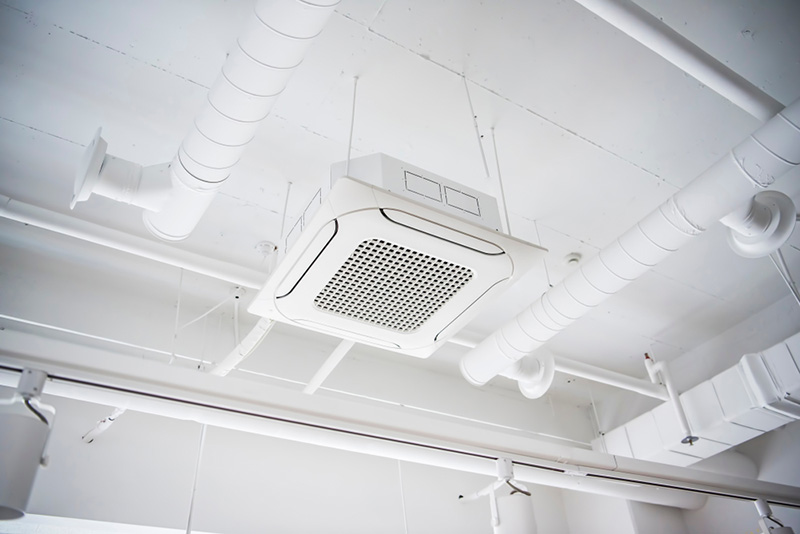
In this article, our air con installation team will talk through tips to help you maximise the energy efficiency of your air con unit. These tips can help extend the lifespan of your unit and keep your bills down, without sacrificing any of your comfort.
Having your AC ducts tested regularly, by a professional air con contractor, can help you save hundreds of pounds on energy bills. It’s important to not try this at home, with ordinary duct tape. Instead, a professional will use proper sealants like metal.
This is an obvious one, but people often still neglect it. In winter, turn down the thermostat when you’re not at home. There’s no point heating an empty house. Likewise, in summer, what’s the point of cooling your home if you’re not in it?
Adjusting your thermostat by 10 degrees on days when you’re out can save you between 5-15% on your energy bills.
Remote-controlled thermostats give you remote access to the temperature of your home. This is ideal for those times when you leave the house and wonder ‘Did I turn the heating off?’. You can quickly check-in and adjust, saving yourself from unnecessarily heating or cooling your home, and wasting energy.
Clogged filters are very bad for the efficiency of your air con unit. Blocked filters cause reduced air flow, making the unit work harder to heat or cool your home. The unit working harder is then bad for its energy efficiency, and likewise your energy bills.
If you haven’t already installed your air con units, think carefully about where you are going to put them. Air con units will work better when installed in cool, shaded spots. It makes no sense to install one in direct sunlight!
If possible, install all the units on the north side of your home. Or, if installing on any other sides, try to place the units strategically behind trees, which will offer shade and keep the units cool.
Regular air con services will ensure your units, and all their parts, are in good working order. Contractors can spot any problems early on, before they turn into bigger issues that might cost you more to fix or that might result in you spending extra on energy bills.
Posted By admin on February 21st, 2025 in blog